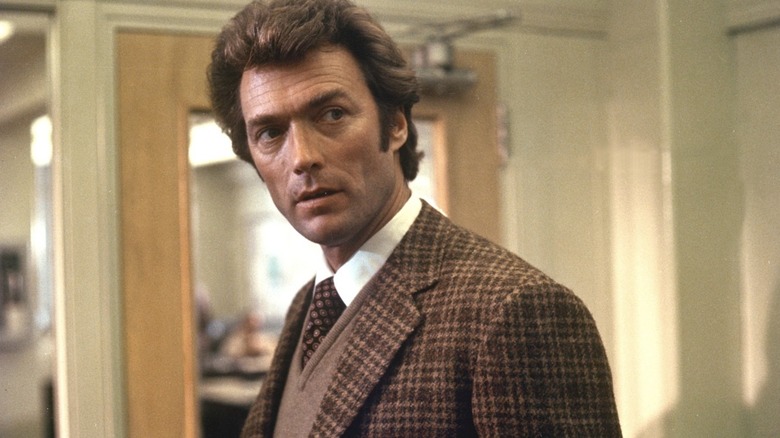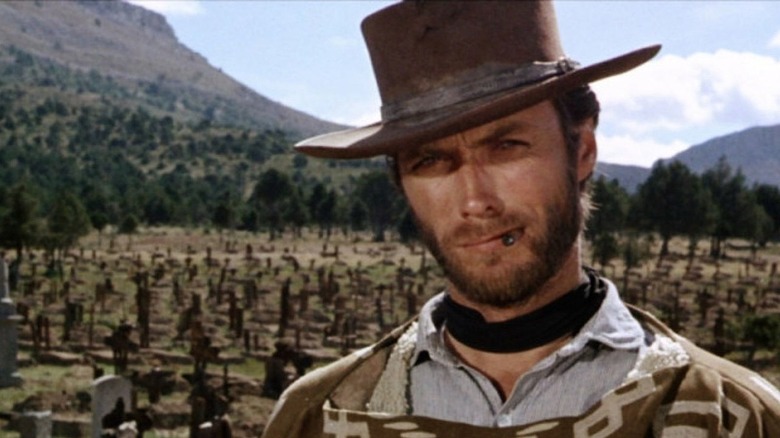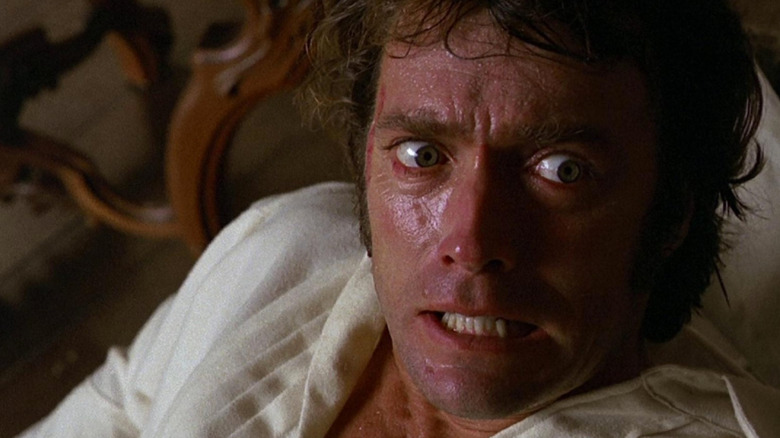Clint Eastwood Saw One Very Important Difference Between Don Siegel And Sergio Leone
Director Don Siegel started his filmmaking career back in the 1940s, directing montages for high-profile studio pictures like "Now, Voyager" and "Casablanca." He eventually made a name for himself in the 1950s with hard-boiled crime dramas like "The Verdict" and "Riot in Cell Block 11" as well as the indelible sci-fi classic "Invasion of the Body Snatchers." Siegel would also become notable for the five feature films he made with Clint Eastwood — "Coogan's Bluff," "Two Mules for Sister Sara," "The Beguiled," "Escape from Alcatraz," and, most popular, the 1971 classic "Dirty Harry."
Film director Sergio Leone also began his career in the 1940s, working as an assistant director or a writer on dozens of features in his native Italy. He would begin directing in 1959 with "The Last Days of Pompeii," but his reputation as an auteur would be cemented with his famed five-film cycle of Spaghetti Westerns, so-called for their country of origin. Of his Westerns, three of them were made with Clint Eastwood, and the trilogy — including "A Fistful of Dollars," "For a Few Dollars More," and "The Good, the Bad, and the Ugly" — is often considered the apex of the genre.
As an actor, Eastwood rarely collaborated with particular directors more than once. Apart from Siegel and Leone, Eastwood made two films with director Ted Post, but one might speculate that Eastwood had more notable, rewarding relationships with Leone and Siegel.
In the 1999 book "Clint Eastwood: Interviews," edited by Robert E. Kapsis and Kathie Koblentz and updated in 2010, Eastwood revealed that his two most celebrated collaborating partners were, while both admirable, incredibly very different people with different work ethics.
A fistful of auteurs
In an interview with Stuart M. Kaminsky, Clint Eastwood first talked about Don Siegel and how the director was far more open and collaborative than the average. The popular image of the film director — gleaned from satires and comic strips — often depict pushy, confident people with megaphones and riding crops, a send-up specifically of Erich Von Stroheim. Siegel, according to Eastwood, was no tartar or dictator, but a decisive diplomat. By Eastwood's account, Siegel would listen to anyone, and would move swiftly with ideas:
"It's a mutual-admiration thing. He likes a lot of my ideas and I like his. I like his attack on directing. He's very straightforward. His films always have energy. He has that energy as a person. He moves briskly and tries to get right to the point in directing. I've been involved with some directors who are wishy-washy, don't know what they want. Don never starts rolling until he has [a plan of] attack. We change a lot of things in the middle, but even the changes are positive, forward. I think that's what I like: his forward momentum is always there. He never gets bogged down, even in disaster."
It seems that even while Siegel was often making movies about desperate and angry characters — a notable throughline of his work — he kept a cool head. This was something Eastwood himself would come to value in his own career as a director — calm, quiet, quick, decisive. It seems that Eastwood took those directorial qualities from Siegel, or merely admired them.
Seigel vs. Leone
When comparing Don Siegel to Sergio Leone, however, Clint Eastwood had a different view. It seemed that Leone was, in a more traditional sense, an auteur. While a director will (ideally) ultimately make final decisions on a set, some are open to listening to ideas and others prefer to communicate their own. Leone was the latter. When Stuart M. Kaminsky asked Eastwood to contrast them, he said:
"Don likes to hear ideas. He has an ego like everyone else, but if a janitor comes up with something, he won't turn it down. He'll take from anybody. He kind of breeds an atmosphere of participation. Sergio Leone, whom I respect very much, would never give me any credit for the style of a film I'd been in with him. Don would and does. This is true even though Sergio and I would hash out ideas together, toss them back and forth. I want to make it clear that I like Sergio, liked working with him."
There aren't too many sources on this, and it remains largely speculative, but it has been widely rumored that Eastwood and Siegel would eventually have a falling out over who got to produce their 1978 collaboration "Escape from Alcatraz." By most accounts, however, the two men seem to have gotten along fine, and Eastwood was deeply respectful of him. Indeed, Eastwood's own directing career was encouraged by Siegel. Now 92, Eastwood has little critical to say about his films with either of his most frequent director.
And for good reason. Between the three of them, they made some of the best-known genre films of their decades.


